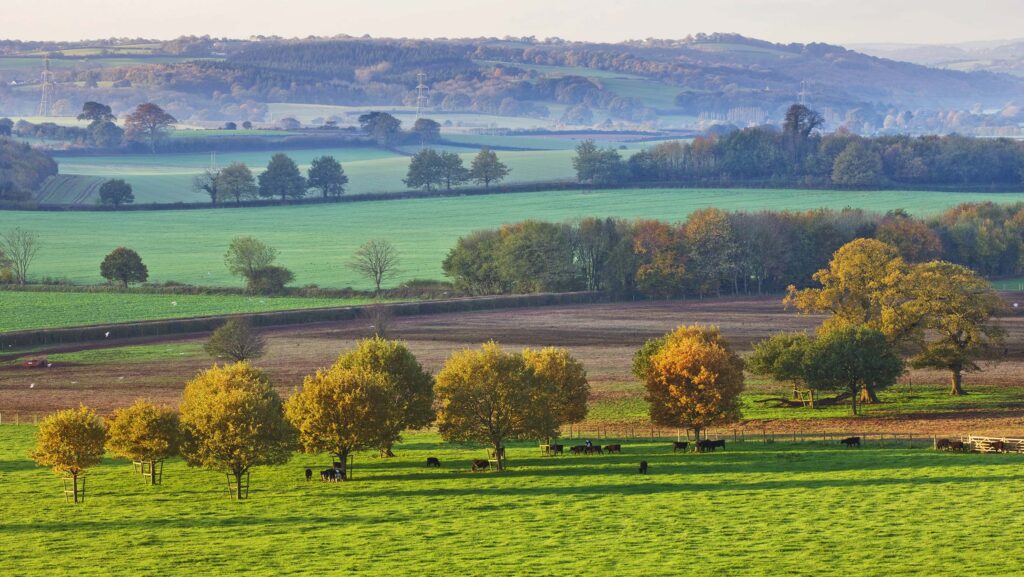Tenant farmers at heart of new National Trust strategy
 Killerton, Devon © National Trust Images/James Dobs
Killerton, Devon © National Trust Images/James Dobs The National Trust has unveiled a new 10-year strategy, marking a significant shift towards prioritising nature-friendly farming and food production in its conservation efforts.
The plans, announced on Friday 10 January in celebration of the trust’s 130th birthday, place tenant farmers at the heart of the charity’s approach to tackling the climate and nature crises.
The strategy, which follows the largest consultation in the trust’s history, outlines three key objectives for the decade ahead: restoring nature, ending unequal access to nature and heritage, and inspiring millions to take action for the planet.
See also: National Trust explains plan to make café food 50% vegan
These goals, developed with input from more than 70,000 individuals, including farmers and stakeholders from across the agricultural sector, are designed to create a more sustainable and inclusive approach to conservation.
The new strategy signals a commitment to working more closely with farmers, strengthening the link between conservation and food production, and ensuring farming plays a vital role in the future of the UK’s landscapes.
Letter to tenants
In a letter sent to its tenant farmers, the National Trust outlines its plans to create 250,000ha of nature-rich landscapes, working collaboratively with farmers to improve soil health, water management, and carbon sequestration.
The charity acknowledges the essential role of farming in delivering both food and biodiversity outcomes, and highlights the importance of maintaining sustainable farm businesses.
“The National Trust’s new strategy demonstrates a deeper understanding of the role that farmers play in shaping both the future of food production and the environment,” said George Dunn, chief executive of the Tenant Farming Association.
“It is reassuring to see that the National Trust now recognises farming as a central part of nature restoration, which is a positive shift from the past, when food production was sometimes seen as a conflict with conservation.”
The letter also invites tenant farmers to contribute their ideas and experiences in the restoration of wildlife habitats and the management of species on National Trust land.
The trust is particularly interested in how traditional farming practices, alongside new innovations, can support the achievement of these goals.
Mr Dunn welcomed the focus on collaboration, saying: “The National Trust’s recognition of the need for sustainable farm businesses is crucial. It will require increased partnership between the trust and its tenants.
“Success will depend on building strong, trust-based relationships at the local level, where the real impact will be felt.”
Public engagement
The strategy also aims to end unequal access to nature by improving accessibility for people with diverse needs, alongside fostering greater public engagement with the natural world.
The National Trust cares for 250,000ha in total, of which approximately 200,000ha (about 80%) is looked after by its 1,450 tenant farmers, graziers and common land rights holders.
